Oh Well

Songfacts®:
- At the time, Fleetwood Mac was a successful blues band known for their raucous stage shows. Their albums consistently sold about 300,000 copies and they were known as outstanding musicians. When Stevie Nicks and Lindsey Buckingham joined the band in 1974, they changed their sound and became one of the best-selling bands ever. Until then, "Oh Well" was the only Fleetwood Mac song that made the Hot 100 in America; they did have several UK hits in this era, including the #1 "Albatross."
- This was one of Peter Green's last contributions to Fleetwood Mac. He was revered as one of the greatest guitarists and songwriters of the time, having replaced Eric Clapton in John Mayall's Bluesbreakers before forming Fleetwood Mac in 1967. He became a high profile acid casualty in 1970 when he suffered a mental breakdown and left the band, devoting himself to religious practice and proclaiming money as evil. An oft-repeated tale has him entering his manager's office with a shotgun, demanding that his royalty checks be discontinued.
- The single was released in two parts. Radio stations usually play the A-side, "Oh Well (part 1)." The B-side is "Oh Well (part 2)," an orchestral piece that sounds completely different. Both parts were written by Peter Green and go together on the album, but Green has very strong feelings about which is the better part.
"The best bit was Part 2 on the other side of the record," he told Mojo in 1996. "You miss the best bit, the Spanish guitar break. The first side was what we played on stage. I didn't think it would be a hit and I used to hate playing that one because we played the part that wasn't as good. I wanted a bit of moody guitar playing. They wanted the bit that was easy to do, that everyone knew." - Mick Fleetwood was sure this song would go nowhere. He bet Green that it would tank.
- Fleetwood Mac was six years away from their Stevie Nicks/Lindsey Buckingham era when this song was released. The lineup on this track was Peter Green (vocals, guitar), John McVie (bass), Danny Kirwan (guitar), Mick Fleetwood (drums), and Jeremy Spencer (piano).
-
- The stop and start technique inspired Led Zeppelin to do the same thing on "Black Dog."
- This is the only song that has been played in every decade of Fleetwood Mac, starting in the '60s. When Mike Campbell of Tom Petty & the Heartbreakers joined the band in 2018, the song became a feature for him, and his only lead vocal in their set.
- Jimmy Page and The Black Crowes released a version on their 2000 album Live At The Greek.
Comments: 32
- Steve from ColoradoJeff, Peter Green (that you describe as sloppy guitarist) was the replacement for Eric Clapton, and considered one of the best guitarists of the era. B.B. King himself said that Peter Green was the only white musician whose blues could make him sweat. I'm betting B.B. King's opinion of Green's guitar is more credible than yours.
- Travler from West-by-godDid some thinking...and I was less than a "Man of the World" with my spelling on this tune...it's spelled... "Green Manalishi"...." Oh Well"!
- Travler from West-by-godIn "My" personal opinion....Green, Fleetwood, Mcvie, Spencer and Kirwin.... "That" to me,was and always will be....Fleetwood Mac! Albatross, Dust My Broom, Green Manaleshee, Pack My Clothes, Tallahassee Lassie, and on and on!!
- Steve from Whittier, CaCorrecting my own last post:
LED ZEP with Black Dog did an excellent number on this, and I like the Rockets but the Fleetwood Mac versions RULEZ!:) - Anna from Seattle, WaGary from KZOK: Thank you for all the good info! (I know who you are, I live and grew up in Seattle!) Thanks for mentioning Danny Kirwin too. Seems to be A LOT of misinformation out there. I was not old enough to remember PG's FM but am so glad to learn and am thankful for accurate information :)
- Anna from Seattle, WaI saw a recently filmed documentary when Green himself commented on this song. (It's a BBC Series called "Peter Green, Man of the World", and it's available in it's entirety on Youtube) He said the first version is to attract the listener's attention so they will be receptive to the second verse when he mentions "God". His religious beliefs/obsession were beginging to converge with with his mental illness at that time reportedly. Many believe that was probably exaberated or brought out fully from being a mere genetic vulnerability to full-blown psychosis by the over use of acid & mescaline (along with being dosed with "bad junk"..i.e. bad acid..at a commune in Munich in 1970 which reportedly spelled out the end for his music career according to the other FM members at the time)..the whole sequence and causation depends on whose opinion you're getting of course.
- Anna from Seattle, WaThank you those of you who corrected the "fact" that "Oh Well" was Peter Green's "onl;y" Fleetwood Mac song that "ever charted". In the UK, they outsold the Beattles AND the Stones in `1969. They began charting with the instrumental "Albatross" in 1968, as Chris in MA explains. I wish that info at the top would be corrected, instead of giving all the FM glory to the 1974 and later line up. Not only did these songs chart, several songs went on to inspire mammoth rock hits known immediately within the first few notes to all generations. Like "the Green Manalishi", "Black Magic Woman, and of course, "Oh Well". Sometimes we like the covers better due to personal taste or simply because we are used to them. I think it's amazing such central rock songs originated from one band in just a couple of years to heavily influence rock music forever. Credit due where it's due, whatever version you like. But seeing films of Green playing this back in the day are priceless. He actually burst out in glee & laughter with the love of his craft. I personally can't compare him to anyone else when it comes to his work.
- Steve from Whittier, CaPS I meant figure out in my last comment. I should add that as much as I love Oh Well, I'm having a bit of a problem figuring out the whole meaning...:)
- Steve from Whittier, CaListening to the second part. Whether it's this 1969 original or the Rockets's 1979 one (which I have and somewhat prefer like Reed from Sterling Heights and Jeff from Concorn here myself). this isn't a much played sonmg regardless, but I enjoy both artists's version...Black Dog did base their stop-and-start
AND ALSO the melody on this...and the lyrics are kind of hard to digure for me on both songs...:) Oh well..:) - Jeff from Concord, CaI'm with Reed from Sterling Heights. The Rockets version rocks. It's tight and it moves. I know Fleetwood Mac is responsible for the original version, but I can't stand to listen to it when it plays on the radio. Part I has stops, starts, random percussion, sloppy guitar. Then along comes the totally self-absorbed, fairies-and-dragons Part II. Two chords over-and-over again...really? Sorry, it's the Rockets version for me.
- Karen from Manchester, NhI've heard the Rockets' version, and I have to disagree. They trashed this song.
- Reed from Sterling Heights, MiI know exactly what you are saying. I grew up knowing The Rockets version of the song first, and even though I really like Fleetwood Mac (with Rumors being at or near the top of my all time favorite albums list), I really don't care for the original version of the song as much.
The Rockets released the song in 1979 on their self-titled album The Rockets, which BTW, after 30 years was finally released on CD! It was released together with No Ballads, their other album great album, in 2009. - Christian from Cologne, GermanyAlbatross was a hit in Germany and remained a radio favourite throughout the early 70s.
Around 1974, West German radio ran a weekly top 3 "Oldies" poll to complement their teenage top 20 poll. Two recurring audience favourites were "Nights in White Satin" and "Oh, Well - Part 2"! I attribute this to the beginning popularity of lyrical Genesis-style prog hymns with teens back then, a genre that both songs helped create. - Pala from Madison, Wi, WiMaybe "Hypnotized" from 1973 didn't chart, but I definitely remember hearing in on the radio sometime in the 70's. It is the only song that I knew of Fleetwood Mac from their prior-Buckingham/Nicks era, until I researched the history of the band. So I would disagree that "Oh Well" was the only earlier era Fleetwood Mac song to receive radio play, though I do remember hearing that song on the radio at the time, too. Actually it was the song "Hypnotized" that caused me to find out about Fleetwood Mac's early days. The impetus for this is when I heard an instrumental version of what I recalled to be "Hypnotized" on Smooth Jazz radio, but couldn't recall the song's title, only that I knew it to be an early Fleetwood Mac song, and then I found out about all the Blues history and the strange story of Peter Green. Just a side note-- there's nothing wrong with one having a Christian spiritual conversion, if that's what happened to Mr. Green. Even if acid-dropping hitting his mind may have been the catalyst, having a mystical Christian conversion doesn't make one crazy, just so you know. Peace Out.
- Oldpink from New Castle, InAbsolutely incredible song, and it is such a pity that most radio stations play only the first half.
I first became aware of this several years ago while listening to one of the more open minded local radio stations, when I heard the familiar part 1 of what I knew was Fleetwood Mac's "Oh Well."
Then, there was about a five second pause at the end, and suddenly it became a stunning medieval piece, with Peter Green mournfully strumming his acoustic.
To this day, it is one of the most haunting pieces of music I can think of.
I read a short interview of B.B. King some years ago, and in it he said that Peter Green was the only white musician whose blues guitar could make him sweat.
Listening to this, you will see why. - Gary from Seattle, WaPlease also remember Danny Kirwin who also played on Oh Well Parts 1&2.
Be safe,
Gary KZOK, Seattle, WA - Colin from London, United KingdomThe Peter Green version of Fleetwood Mac had many UK hits. Black Magic Woman and Need Your Love So Bad were minor chart entries, then Albatross topped the charts in early 1969, Man Of The World and Oh Well reached no 2, and The Green Manalishi got to no 10. In 1973, a reissue of Albatross also reached second position.
In comparison, the post Green era Mac have had nothing like the same level of singles success. The first top ten hit was Tusk, and their biggest hit was Everywhere, which reached no 4. - Gary from Seattle, WaPeter Green left Fleetwood Mac on May 25th. To devote himself to "what God would have me do." A great guitarist who pushed his craft ended up another acid victum. Be safe, Crowski KZOK, Seattle
- Mat from London, United Kingdom"Oh Well Part 2" is probably my favourite Green era Fleetwood Mac song.
- Malicious Matt from SquatneyBob in Atlanta is right, this was not their only hit. The excellent instrumental Albatross was a #1 single in England. Fleetwood Mac were outselling The Beatles and The Rolling Stones combined during this period, at least in Britain and some other parts of Europe.
- Wyatt from Anywhere, United StatesMick Fleetwod wrote a book with a lot of weird misinformation, I read part of it. I think the book was called "My Life and times with Fleetwood Mac" Its out of print but you can find it used if you look hard enough, I don't think it sold very well. Mick attributed Peter's breakdown to being duped by a strange german religious cult which Peter got heavily involved in. Mick always had a lot problems with money it seems so maybe that's the reason but with freinds willing to sell you out like that that who need enemies? I heard another story that claimed Peter had Schizophrenia and that contributed to it, I imagine that had more to do with Sid Barret but I don't really know. He made a comeback more palatable for him in the early Eighties with albulms like "In the skies" with a heavy Christian bent, seems he did get pretty religious in a Christian sense. He had an earlier album that was very good but a little off the wall called "The End of the Game" I have it somewhere but it was a fairly progressive venture and not the normal blues, in fact it had a bit of a fusion tone as I remember. It was great and showed he didn't really lose it too bad as he was stil able to function without all the pressure. It also showed he could play other styles He still tours once in a while, I saw his tour with the Splinter Group which included muscians like Nigel Watson in a San Fransisco Club and it was great, mostly a lot of old blues covers of artists like Robert Johnson. He's still got it but the originals he wrote in the eighties weren't quite as impressive as his Fleetwood Mac days and more laid back.
- Gary from Seattle, WaOriginally a power blues band, this is a great example of Peter Green's genius. When I had him on my show, he said not to forget Danny Kirwan.
Jeremy Spencer was also on this fourth release, but only in a minor role. Part one and two were recorded in different sessions then scotch taped together. Get the Box set Blue Horizon Sessions if you want the true early Fleetwood Mac
1967 - 1969 - amazing raw power blues rock. Enjoy. Gary - Meznu from Ft. Lauderdale, FlThis was covered by Joe Jackson on his "Laughter and Lust" album.
- Rob from Vancouver, CanadaI liked the rockets version....saw them at a show that included 'heart' Little River Band and bob welch(another ex-fleetwood mac'er).
- Pat from Albuquerque, NmI was at a Fleetwood Mac concert in Indianapolis in 1975, and the Mac played "Black Magic Woman" (which was a Mac song before it was a Santana song) and "Green Manalishi" at that concert, as well as "Oh Well." I have no idea how many of these songs are played at their concerts these days.
- Rob from Boston, MaActually, thats not true. The "new" Fleetwood Mac performed Hypnotized and Station Man live in concert until the early 80's. Although, Oh Well was the only Peter Green song they kept from then on.
- Chris from Leeds, EnglandThis is the only 'original mac' song to be performed by the 'new mac'. It was performed off and on during the Mirage and Tusk tours. The live version of the song performed by Lindsey Buckingham and Christine McVie is also the b-side to the uk cd singe of 1988's "As Long As You Follow" along with Gold Dust Woman.
- Rick from Humboldt, IaLindsey Buckingham sang this when it was performed by the newer fleetwood mac during the eighties.
- Bob from Atlanta, GaSomeone said this was the only song that charted before the great metamorphosis in the mid-'70's, but I think they had a #1 instrumental in England in 1968 called Albatross.
- Dan Devins from Washington, MiThe Rockets,a Detroit band,recorded and released this tune in the late 70's or maybe 1980-it rocked!
- Jim from Oxnard, CaFleetwood's bet with Green was the final straw. He had a nervous breakdown and left Fleetwood Mac the year after.
- Chris from Hull, MaBlack Dog - Oh Well. Yes, I hear the similarities now. Fleetwod Mac - timeless!
More Songfacts:
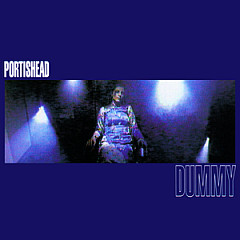
Sour TimesPortishead
The eerie percussion and guitar for Portsihead's "Sour Times was sampled from Lalo Schifrin's "Danube Incident," music composed by the Argentine composer for an episode of Mission Impossible.
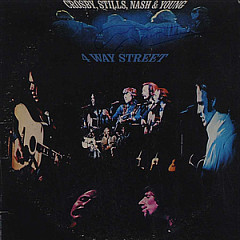
OhioCrosby, Stills, Nash & Young
Neil Young wrote the CSN&Y song "Ohio" about the Kent State Shootings, when the National Guard opened fire on students at Kent State University in Ohio, killing four.
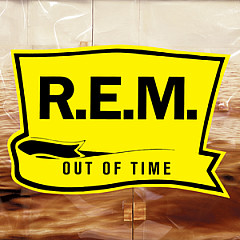
Losing My ReligionR.E.M.
"Losing My Religion" isn't about religion, but unrequited love. The title is based on a Southern expression meaning "at my wit's end."
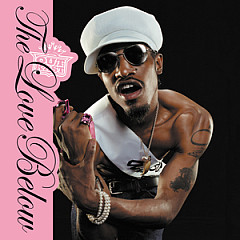
Hey Ya!OutKast
Andre 3000 played all the instruments on Outkast's "Hey Ya" except bass. Aaron Mills from Cameo played that.
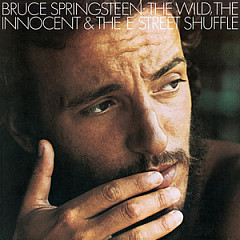
Rosalita (Come Out Tonight)Bruce Springsteen
Bruce Sprinsteen said "Rosalita (Come Out Tonight)" was "the best love song I ever wrote."
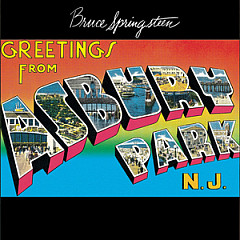
Blinded By The LightBruce Springsteen
Bruce Springsteen wrote "Blinded By The Light," which was a #1 hit for Manfred Mann's Earth Band. The "Madman Drummers" line is a reference to Springsteen's first E-Street drummer, Vinnie "Mad dog" Lopez.
Editor's Picks

Brenda RussellSongwriter Interviews
Brenda talks about the inspiration that drove her to write hit songs like "Get Here" and "Piano in the Dark," and why a lack of formal music training can be a songwriter's best asset.

Hawksley WorkmanSongwriter Interviews
One of Canada's most popular and eclectic performers, Hawksley tells stories about his oldest songs, his plentiful side projects, and the ways that he keeps his songwriting fresh.

Director Paul Rachman on "Hunger Strike," "Man in the Box," KissSong Writing
After cutting his teeth on hardcore punk videos, Paul defined the grunge look with his work on "Hunger Strike" and "Man in the Box."

Lace the Music: How LSD Changed Popular MusicSong Writing
Starting in Virginia City, Nevada and rippling out to the Haight-Ashbury, LSD reshaped popular music.

Roger McGuinn of The ByrdsSongwriter Interviews
Roger reveals the songwriting formula Clive Davis told him, and if "Eight Miles High" is really about drugs.
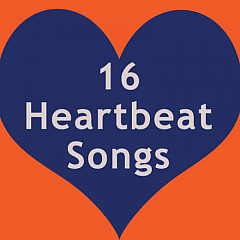
16 Songs With a HeartbeatSong Writing
We've heard of artists putting their hearts into their music, but some take it literally.

